Propolis and Cancer
by Angela Van Alten, Nutritionist and Beekeeper's Daughter

A review of the research on propolis and cancer has been published in the Journal of Dietary Supplements by Dr. Seema Patel of San Diego State University. Dr. Patel's review of all the literature on propolis and cancer found that propolis has many biological effects including antioxidant and anticancer properties.
This is very exciting but before we go proclaiming that propolis cures cancer, it is important to keep in mind that these studies have been done in test tubes and animals only. Large human studies have not yet been completed. This must be kept in mind, especially if you are a cancer patient and looking for alternative options or if you are looking to prevent cancer.
According to Dr. Patel's review, studies conducted around the world have shown that Propolis has efficacy against the following cancers:
|
|
It was found that the mechanism by which propolis alters cancer cells are through the following means:
- The inhibition of matrix metalloproteinases. MMP's are thought to play a major role on cell behaviors such as cell proliferation, differentiation, angiogenesis, apoptosis, and host defense.
- Anti-angiogenesis. Propolis prevents the growth of new blood vessels to the cancer cells.
- Prevention of metastasis. Propolis halts the spread of the disease from one organ to another.
- Cell-cycle arrest. Propolis helps to stop cells from dividing.
- Induction of apoptosis or programmed cell death. Propolis helps cancer cells commit suicide.
- Moderation of chemotherapy-induced side effects. For those going through Chemo, propolis reduces side effects or 'toxicity'.
Propolis has as many as 300 compounds within it that show biological activity. The components conferring the most promising anti-tumor potential have been identified as:
- caffeic acid phenethyl ester or CAPE
- chrysin
- artepillin C
- nemorosone
- galangin
- cardanol
- quercitin
- acacetin
- apigenin
- p-coumaric acid
If you are using Propolis for it's anti-oxidant properties or for an anti-cancer benefit, it is important that you use a quality product that has these active compounds in it. Propolis from different geographical areas will contain different compounds in different amounts. Low quality propolis may have none of these in them at all.
Propolis Antioxidants May Help Prevent Tumor Growth
In a study published in the Journal Molecular Nutrition and Food Research, researchers examined the antiangiogenic and antioxidant activities of the various components from propolis listed above.
Two propolis components, caffeic acid phenethyl ester, and quercetin, possessed strong inhibitory effects on tube formation and on endothelial cell proliferation. What this means is that they prevented new blood vessel networks from forming to supply the cancer cells with blood. When this occurs, the cancer cells can not grow into dangerous tumors. These compounds also showed strong antioxidant activity.
Artepillin C, galangin, and kaempferol also possessed strong antiangiogenic and antioxidant activities. In contrast, acacetin, apigenin, and pinocembrin possessed a considerable degree of antiangiogenic activities, although they showed very low antioxidant activities.
Propolis Extracts Have Anticancer Activity
The journal Online Reports published a study in August of 2009 in which it was examined whether alcohol based Chinese and Brazilian propolis tinctures may exert anticancer activities in four human colon cancer cell lines.
In three of the four cells, the extracts of both Chinese and Brazilian propolis caused a significant dose-dependent growth inhibition. It was also noted that in one cell line, Chinese propolis extract induced apoptosis (cancer cell death) in the cells after 72 hours of treatment.
These findings clearly indicate that propolis contains components that may have anticancer activity. However, additional research is badly needed. The next step for researchers will be to conduct human studies to determine if these test tube studies can be successfully replicated in cancer patients.
Recommended Propolis Brands
I often get asked which brands of propolis I recommend. I use, trust and recommend Dutchman's Gold line of propolis products only. This is because I can personally vouch for the quality control, sourcing and purity testing that they conduct. You can find them here.
†These statements have not been evaluated by the Food and Drug Administration. This product is not intended to diagnose, treat, cure or prevent any disease.
|
|
|


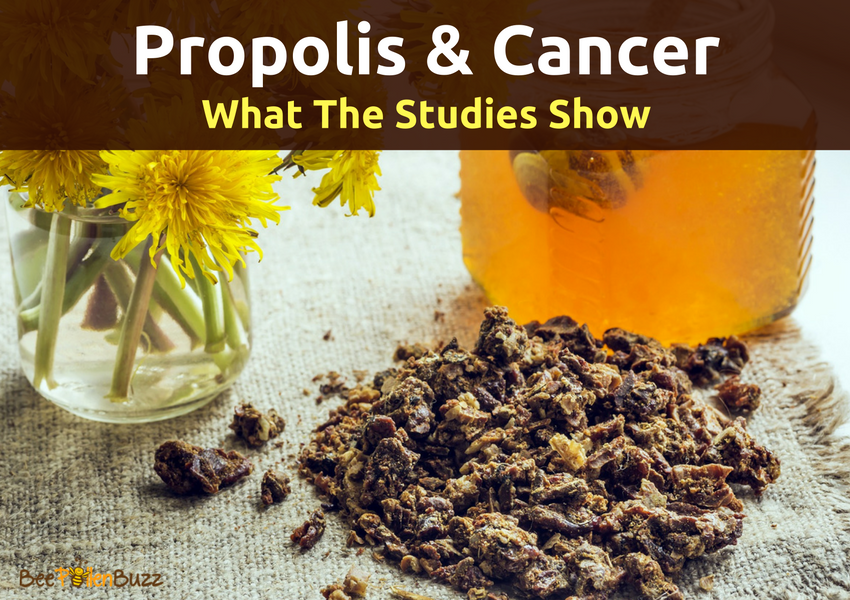
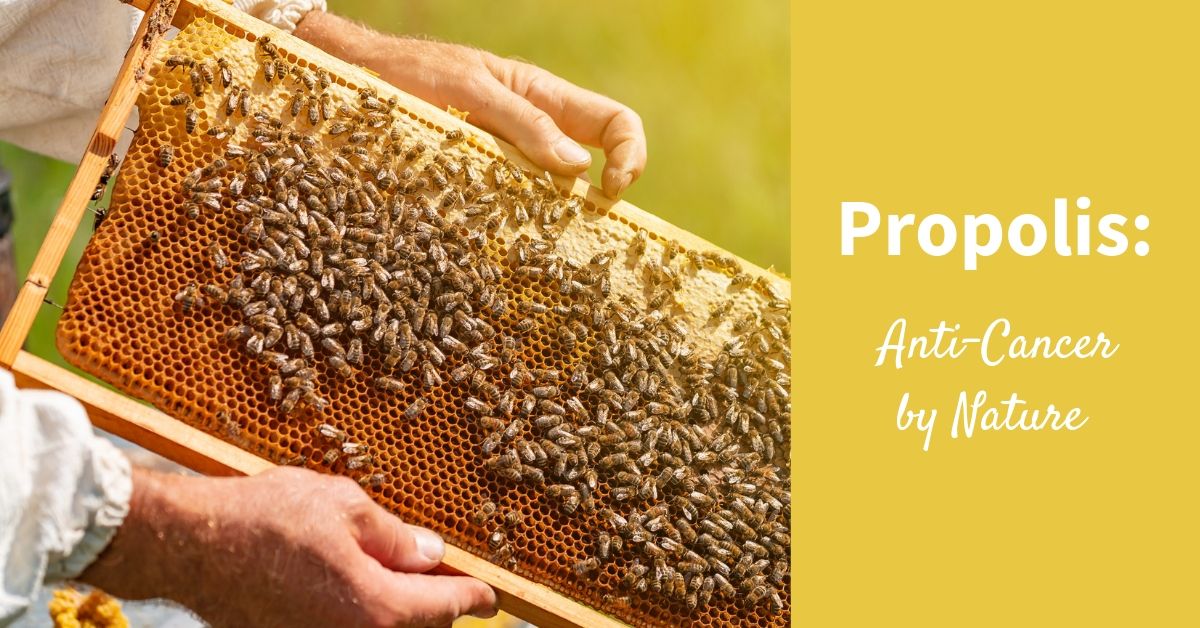
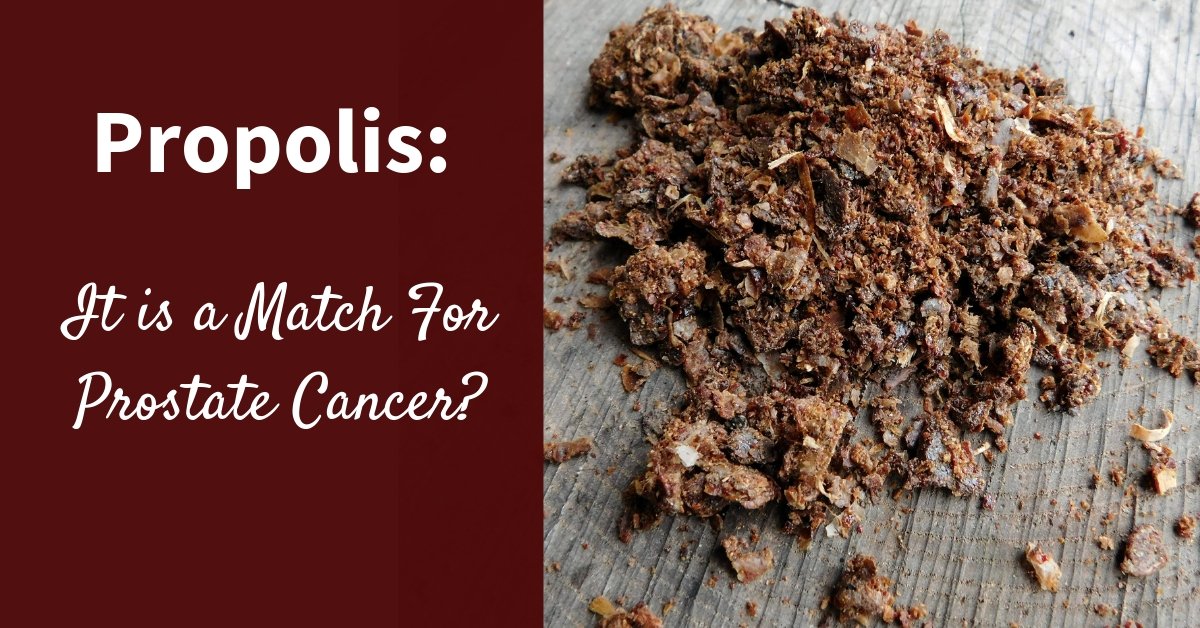
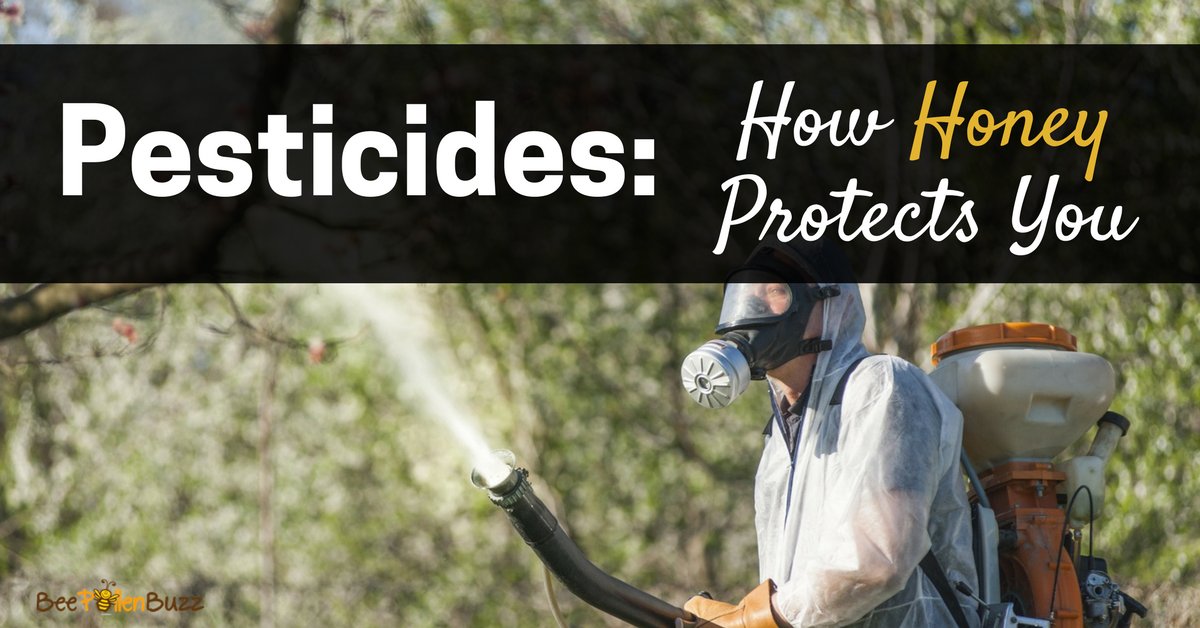
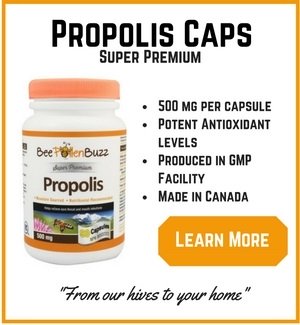
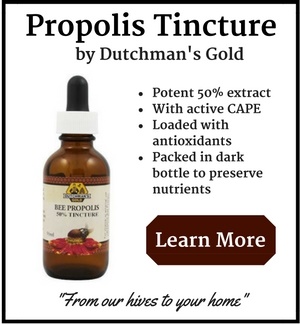
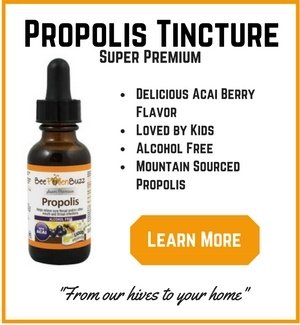
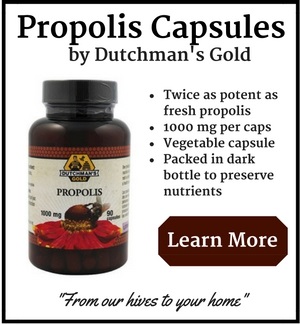






New! Comments
Do you have something to say about what you just read! Leave me a comment in the box below. I'd love to hear from you!